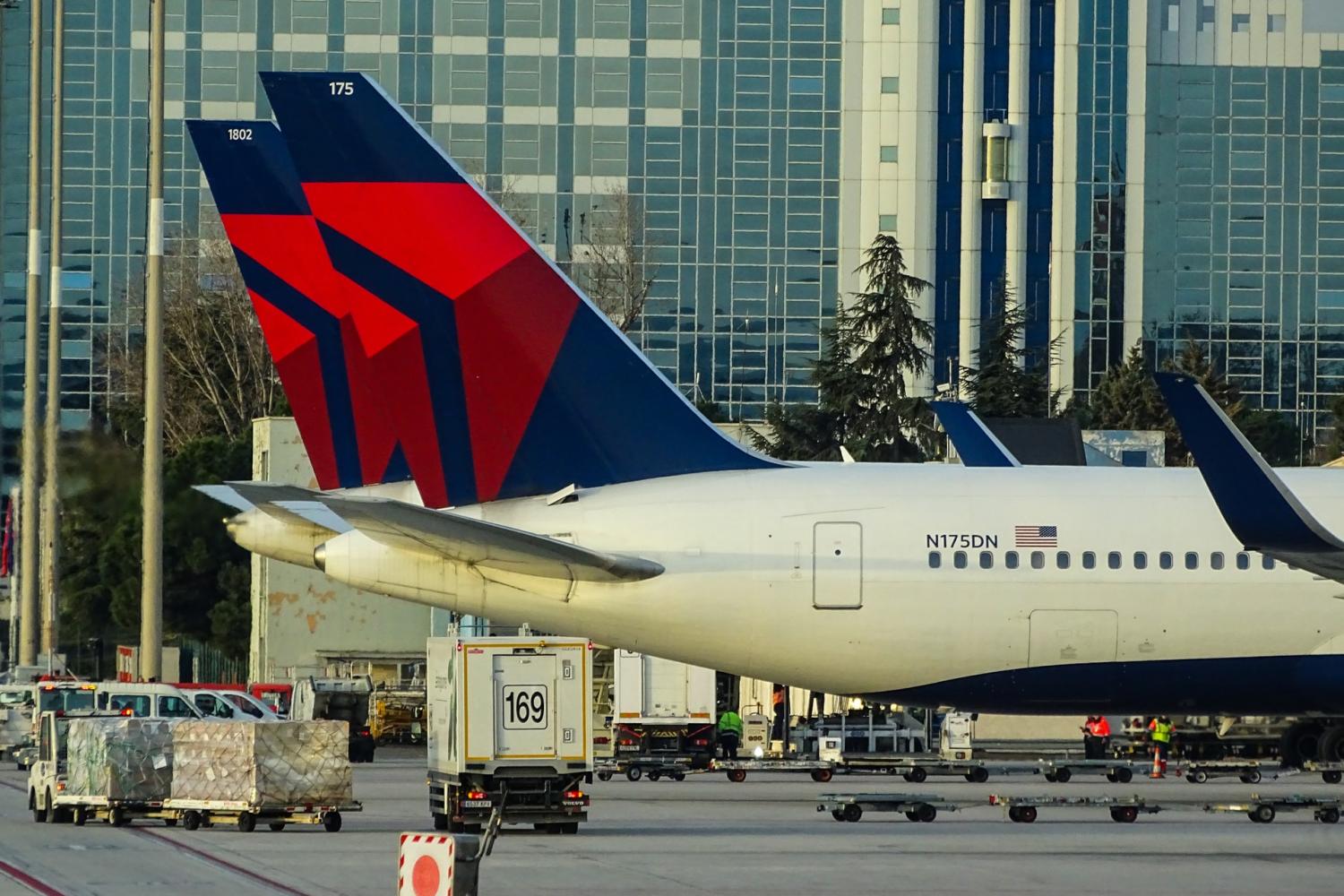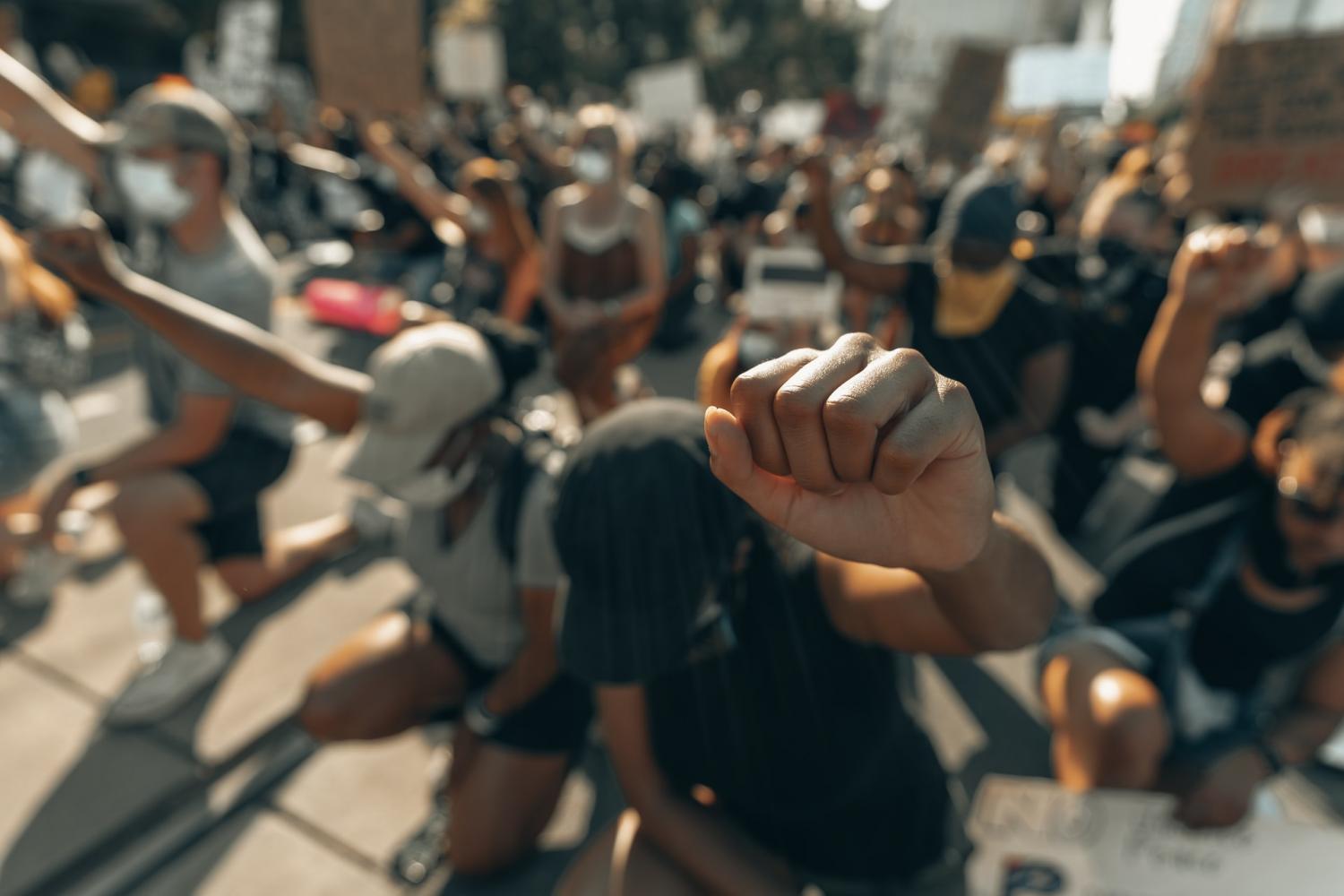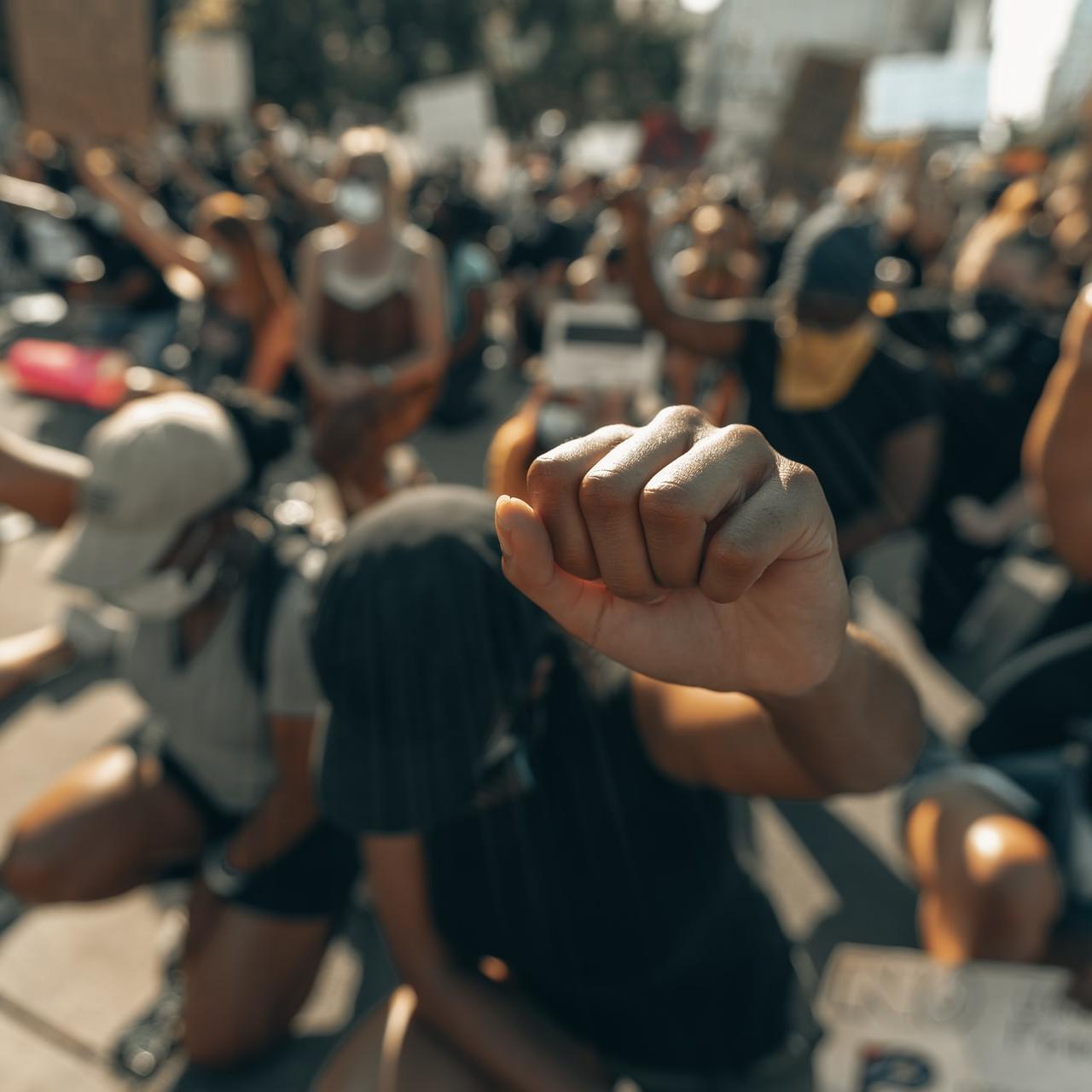The Pandemic is Unmasking Supply Chain Problems We Can’t Wipe Away Anytime Soon


This pandemic will long be remembered not for the countless problems it has created, but for exposing countless flaws that have already existed. COVID-19 painfully ripped off the bandage and let it all see the light. We’re mired in this reality now, whether it’s what we’re seeing with our burdened public health systems, inequality, racial relations, or supply chains within the food sector and other industries.
Can’t wipe this one under the rug
The impact this pandemic has had on our supply chain reared its head again this week with Clorox announcing that its popular line of cleaning wipes products won’t appear on store shelves — that is, without any hiccups — until at some point in 2021.
That’s a disappointment to consumers who, during this spring, had listened to supply chain experts who said anything having to do with restocking cleaning supplies would get back to normal this month at the latest.
No matter how one may feel about using any cleaning wipes, period (fun fact: the U.S. Centers for Disease Control and Prevention (CDC) has recommended many cleaning spray products can work just fine, and in a pinch, you can make your own), this is far from a case in which Clorox did anything right or wrong. Six months ago, no one thought we’d be in the midst of such a crisis, though when it comes to long-term planning, some companies as different as Intel and Waffle House would beg to differ.
Global supply chains are the problem, not the solution
But what this pandemic has revealed is how global supply chains have often become the problem, not the solution, especially when a crisis akin to the one we’re experiencing now wreaks havoc. One problem many manufacturers of wipes face is that one of the key raw materials in cleaning wipes, polyester spunlace, is also critical for the manufacture of personal protective equipment (PPE) such as surgical masks and gowns.
Even if that coveted polyester spunlace can be found in other nations, other snags can hit the supply chain, including many companies’ reliance on China for making the plastic canisters used to package wipes.
Meanwhile, the manufacturing of paper products such as toilet paper, the shortage of which launched a million memes earlier this year, has largely stabilized in the U.S. But that’s because most companies in this space rely on pulp sourced from the Americas.
Bottom line: Do you want wipes or protective equipment?
Global supply chain risks have been exposed as open sores on the business landscape as healthcare systems and governments scramble to ensure they have adequate supplies of protective equipment. Countless heads of companies and government agencies have since questioned the conventional wisdom of sourcing such products from abroad — and the flooding that hit much of China last month added another reminder that it doesn’t take much to disrupt any company’s supply chain.
True, smart companies can pivot quickly during a time like this. They can swap canisters for soft-sided packaging. They can scramble to find different-sized containers. And sure, at a time when consumers aren’t so persnickety, fancy colored tabs and labels can be ditched – no one is going to fuss over the appearance of a roll of wipes.
But once we emerge from this pandemic and settle in for a long debrief over what went wrong and what could have been done to prepare us, there will be room on that list for how companies approach their supply chains. A more localized supply chain isn’t just about preparedness in the face of disaster: There are also opportunities to build local communities with good jobs while strengthening brand reputations. Trust is in short supply now, and it will be invaluable for companies in the long run. Becoming, procuring, and operating more locally will prove to be both a smart and remunerative strategy.
Image credit: Leon Kaye
U.S. Companies Are Lagging on Stakeholder Capitalism


U.S. corporate leaders remain out of step with the rest of the world when it comes to social purpose, according to a new survey on stakeholder capitalism from Diligent Institute. While 63 percent of global leaders strongly believe that a fundamental change in capitalism is underway, only 33 percent of U.S. leaders strongly agree with that view. The survey results indicate that U.S. corporate leaders may be too busy navigating the economic fallout of COVID-19 to jump feet first into a new kind of capitalism.
Accept and don’t hide from finding your company’s social purpose
“I think companies are still really trying to figure out how to get a path out of this, and how to get back on track in some way. When you're in that kind of crisis response mode, often things like ESG programs may take a back seat. I think there is going to be a lot of fits and starts. In the U.S. it’s not even a downward economic climb—a plummet off a cliff is probably a better way to phrase it,” Diligent Institute Executive Director Dottie Schindlinger told TriplePundit.
Understanding how business leaders are handling this complex balancing act and how it might be changing specific board behaviors was the aim of the survey, “Stakeholder Capitalism: Translating Corporate Purpose into Board Practice,” which included the views of 406 directors and corporate leaders. The idea of stakeholder capitalism is that for too long, companies have valued short-term gains for shareholders and investors at the expense of the long-term well-being of all stakeholders. When the influential Business Roundtable in the U.S. changed its course on this thinking last year with a statement abandoning strict shareholder primacy in favor of stakeholder interests, the tide had turned.
About that Business Roundtable statement…
Or so we thought. In fact, U.S. directors are significantly less likely to agree with the “Davos Manifesto” than leaders from other countries, the Diligent survey showed. The Davos Manifesto was launched at the 2020 World Economic Forum and which explicitly calls on companies to establish a clear societal purpose and serve the interests of stakeholders. While 71 percent of global leaders strongly agreed with the Davos Manifesto, only 61 percent of the U.S. respondents did so.
One big reason for the gap between the U.S. and the rest of the world, Schindlinger says, is the lack of regulatory pressure on U.S. companies to meet certain environmental, social and governance (ESG) benchmarks. “In almost every other part of the world, companies are now having some regulatory pressure to disclose what they're doing around ESG while in the U.S. we're a bit behind.”
The glimmer of hope Schindlinger sees in the U.S. leaders’ divergence from their global peers is the degree to which they agreed with the statement: “Boards expect to discuss the impact of their decisions on non-shareholders with very high frequency in the three years following the COVID-19 outbreak.” In this regard, they were aligned with their peers, with 42 percent of directors surveyed saying they expected to discuss these topics at every meeting (compared to 26 percent in the past three years). And 73 percent expect to discuss it at least quarterly, compared to 47 percent over the past three years.
“That’s maybe one hopeful way of looking at it, which is that U.S. directors did tell us that expect to be talking much more about stakeholder interests in the coming three years than they have so far,” Schindlinger says.
Is there a future for stakeholder capitalism in the U.S.?
Schindlinger expects U.S. corporate leaders to eventually catch up with the rest of the world in embracing stakeholder capitalism, because the calls for action from investors and society are all around them. Skyrocketing interest from investors in companies that are ESG leaders hasn’t waned in the pandemic, as 3p recently reported.
As she explains: “A lot of the pressure on companies in the U.S. is coming from the investor community. People who are kicking in money to these investment funds want to know which companies are strongest on ESG, because they tend to give them the greatest return. And then there’s the pressure from employees, customers, local communities. They are working to hold companies accountable, especially on things like racial justice and diversity, especially on things like protecting the workforce around COVID; we're seeing a lot of pressure in terms of protests and employee walkouts and activism around these issues.”
That pressure cooker will eventually burst, prompting a new look at how we define capitalism. “If there's this big groundswell of support from the grassroots, and there's pressure coming from all sides, change will happen, but it may just take longer. It's about focusing on systemic change as opposed to meeting specific regulatory requirements," Schindlinger says.
Image credit: ZSun Fu/Unsplash
Professional Sports Leagues Finally Step Up for Black Lives Matter


As the Black Lives Matter movement begins to fade out of the mainstream media’s headlines, professional sports leagues and individual players are taking actions to ensure the issue of police violence against Blacks in America remains in the public eye throughout the summer. If the effort extends into the fall, it could have an impact on the 2020 election cycle.
Four years ago, near-silence on Black Lives Matter for professional sports
To understand the full meaning of today’s Black Lives Matter protests in major league sports, it is helpful to look back at the origins of the movement.
Much of the general public has encountered the Black Lives Matter movement for the first time this year, as waves of protest marches swept the nation after the murder of George Floyd at the hands of uniformed police officers in Minneapolis, Minnesota.
However, the movement traces its origins back six years ago, to 2013. It was sparked by the acquittal of George Zimmerman, a self-appointed neighborhood watchman in Florida who shot and killed a Black teenager named Trayvon Martin. Martin was unarmed and was returning home after purchasing snacks at a local store.
The case made national headlines but received little formal acknowledgement from professional sports leagues at the time.
To keep the issue alive, three self-described radical organizers — Alicia Garza, Patrisse Cullors, and Opal Tometi — created a decentralized activism project called #BlackLivesMatter. Over the years, the project coalesced into the organization Black Lives Matter, which coordinates with 14 chapters in the U.S. and supports the broader Black Lives Matter movement.
“Black Lives Matter is an ideological and political intervention in a world where Black lives are systematically and intentionally targeted for demise. It is an affirmation of Black folk's humanity, our contributions to this society, and our resilience in the face of deadly oppression,” the movement's leaders explain on its website.
NFL star Colin Kaepernick took those words to heart when he decided to kneel during the National Anthem four years ago in September of 2016. At previous games he had gained attention for sitting in protest of state-sanctioned oppression. He turned to kneeling in order to support the Black Lives Matter movement with a positive message that emphasizes progress and respect rather than divisiveness.
Kaepernick’s decision to kneel came about after conversations with a former Green Beret named Nate Boyer, who was initially angered by Kaepernick’s sit-downs. After meeting with Kaepernick, Boyer voiced support for efforts to raise awareness about persistent structural racism in the U.S. That includes various forms of policing by white individuals, whether they are professional law enforcement officers or not.
Professional sports are now getting the Black Lives Matter message
Clearly the NFL did not get the message back in 2016. For his efforts, Kaepernick was effectively blacklisted by all of professional football. Despite his widely acknowledged status as a star player, no team signed him in 2017, and he has sat out every season since then.
Other athletes and professional sports leagues, though, have picked up the ball.
Last week, Mother Jones took note of support for the Black Lives Matter movement by players and teams in the National Basketball Association.
“Since landing in Orlando as part of the NBA’s return to play, Philadelphia 76ers forward Tobias Harris has spoken to the media about precisely one thing: ‘Justice for Breonna Taylor,’ observed CNN reporter Dan Spinelli.
In contrast to the NFL’s treatment of Kaepernick, Harris has the support of his team and the NBA for his efforts to bring public attention to the death of Taylor, who was unarmed and shot in her bed at night during a no-knock police raid.
“The NBA plastered ‘Black Lives Matter’ on the game court in Walt Disney World in Orlando, where the professional basketball league is finishing its coronavirus-shortened season,” Spinelli wrote. “The NBA also approved 29 statements, such as ‘Say Their Names’ and ‘I Can’t Breathe,’ for players to wear on their jerseys in Orlando once official games begin next week.”
Major League Baseball teams also leveraged Opening Day publicity to draw attention to the Black Lives Matter movement. A new wave of activism included the participation of the New York Yankees and Washington Nationals, in addition to the Los Angeles Dodgers and San Francisco Giants. Every player and coach on all four teams assembled and kneeled along their respective foul lines with long black ribbons prior to their games.
Writing for CNN, Paul P. Murphy reported additional actions for visual impact.
‘“BLM,’ accompanied by the MLB's logo, has been stamped onto the pitcher's mound of the World Series-defending Washington Nationals --and the Los Angeles Dodgers -- on Thursday night. That's the most prominently displayed ballpark location during a television broadcast,” he wrote.
Murphy also noted that BLM and “United for Change” patches were worn by the aforementioned baseball teams.
The Nationals and Yankees players wore BLM shirts for pre-game practice, as did players on the Dodgers. In addition, Murphy reported, Major League Baseball will lift a rule that prevented players from placing messages on their cleats. The new policy allows for social justice messages during the 2020 season.
Nike picks up where the NFL left off
Against this backdrop, the NFL appears to be tone deaf. The league has been among the many sports organizations and businesses to pledge financial support for social justice causes in the wake of this summer’s Black Lives Matter protests, but it has refrained from making the kind of televised, visual statements that create a lasting impact on millions of fans.
Nike, on the other hand, has let no such opportunity pass by. The company had an opportunity to drop its contract with Kaepernick when it expired after the 2016 NFL season. Instead, Nike provided him with the pivotal role in the reboot of its famous “Just Do It” campaign, which launched in September 2018.
The Just Do It reboot highlighted Kaepernick’s social justice activism, which is an interesting juxtaposition considering that Nike was under contract to supply every NFL team with uniforms and other gear.
Nike is still under contract with the NFL, and now it is back with another campaign that puts the league on the spot.
Last week, Nike released a video launching its new "You Can't Stop Us" message, which deploys dramatic split-screen footage to underscore how athletes across the full range of human diversity share a common desire. As reported by CNN among others, the video was viewed more than 20 million times on Twitter within days, and 11 million times on YouTube.
“Many commenters applauded its themes of diversity, social justice and collectivism,” wrote Chancey Alcorn for CNN Business.
Coming in the run-up to the 2020 presidential elections, the message of collectivism and commonality is in stark contrast to the divisive rhetoric of the Trump administration. It also reflects a new wave of participation in Black Lives Matter protests by whites and other non-Black activists.
In that light, the new campaign is another pie in the face of NFL leadership. Nike released the Just Do It reboot just six months after inking a 10-year extension on its NFL contract, drawing renewed attention to the refusal of the league to allow Kaepernick to play.
With the You Can't Stop Us campaign, Nike brings a broader message that underscores how the NFL has fallen far behind the times. The video practically dares the league to come up with a more impactful way of reaching its fans with meaningful social justice messages and empowering its players to speak out.
The NFL just might be on its way to doing that. Last week, BET Sports listed 17 ways that major league sports are demonstrating their support for the Black Lives Matter movement. Among several measures, NFL plans to replace The Star Spangled Banner with Lift Every Voice and Sing, often referred to as the “Black National Anthem,” during the first week of its 2020 season.
The season kicks off on September 10. As noted by BET reporter Alexis Reese, it will be interesting to see if players kneel during the pregame events, and if they do, how the NFL will react.
Sign up for the weekly Brands Taking Stands newsletter, which arrives in your inbox every Wednesday.
Image credit: Daniel Vargas/Unsplash
Delta: No Mask, No Flight, No Service


Despite the data and the science, a small yet vocal minority still resists wearing a mask, whether the argument is over personal freedom, constitutional rights, their own personal health or the devil’s work. Delta Air Lines has a simple, pointed message for this crowd: Fine, but fly with someone else, and don't let the exit doors hit you on the way out.
The U.S. air carrier recently made headlines for its announcement this week that a late July flight was prepared to leave Detroit for Atlanta, but turned around, went back to the gate and kicked out two passengers that refused to wear masks during the flight. The names of the passengers were not disclosed, and the flight eventually reached Atlanta after a “short delay.”
Like its competitors, Delta has had to scramble as the novel coronavirus pandemic devastated the wider travel industry. The company has since updated its safety policy, which makes it clear where face masks are encouraged to be worn versus where they are actually required. As for the chic masks you may have seen in your Instagram stories, if they have a Darth Vader-like exhaust valve, you’re out of luck – they aren’t on Delta’s approved face coverings list.
Speaking of lists, Delta and its CEO, Ed Bastian, say the airline is serious about the mask requirement. To date, it has placed about 130 people who have refused to wear any kind of face covering onto the airline’s very own “no-fly” list. “Whether you’re on the airplane or any Delta property, including our offices and in a public setting, we are requiring makes to be worn,” Bastian told the Washington Post in a recent interview.
Additional measures include blocking middle seats and limiting flight capacity through at least the end of September. “Enhanced cleaning procedures,” including disinfectant electrostatic spraying, has also become the norm according to Delta.
In addition to its stance on wearing masks in the interest of public health, Delta has been outspoken about how airlines need to take on human trafficking and in-flight sexual assaults. Contrast that stand with some of its competitors, which have only made vague references to human rights — or, in the case of COVID-19, have dismissed blocking middle seats as a “PR strategy.”
Sign up for the weekly Brands Taking Stands newsletter, which arrives in your inbox every Wednesday.
Image credit: Miguel Ángel Sanz/Unsplash
Silicon Valley Still Faces a Reckoning on Race
Photo: A view of Silicon Valley (as in the Santa Clara Valley) at night. Critics of the region's tech sector say the industry has long had a race and diversity problem.
Cloud computing giant Workday, which specializes in human capital and financial management software, is an incredible success story. Founded by two former PeopleSoft execs in the wake of Oracle’s hostile takeover of that company, in 15 years its market cap has soared to almost $43 billion.
Based in the Bay Area and boasting more than 12,000 employees globally, Workday’s spectacular growth has been matched by a strong reputation for being a welcoming place to work. The company has landed on various “best places to work” lists, including the popular top 100 rankings that regularly appear in Fortune.
Nevertheless, Workday acknowledges that the company, along with Silicon Valley at large, has plenty of work to do on the diversity front. Company co-founder and CEO Aneel Bhusri has long scored attention for his premise that companies need to show value beyond their share price and that they need to have a soul.
Bearing that soul, in turns out, involves taking a close look at the makeup of your staff.
In a Fortune podcast hosted earlier this week by Alan Murray and Ellen McGirt (the latter of whom writes one of the best newsletters on culture and diversity in corporate America), Bhusri was frank about Silicon Valley’s record of hiring a workforce that looks like America.
Workday itself says less than 3 percent of its workforce is Black. But to the company’s credit, Workday openly discloses this statistic — which is not the norm in Silicon Valley, much of which still notoriously lacks transparency despite the global technology sector’s role in helping to make the world a much more open place.
Bhursi acknowledged that part of the problem is committing to find the talent in the first place. “We have to do a better job recruiting from college, including HBCUs [historically black colleges and universities],” he said. “We need to branch out of the Bay Area and look at other locations.”
Ensuring those employees feel welcome and believe they have an opportunity to grow has also posed a challenge, Bhursi said. “There’s a sense if you’re a Black employee, you don’t get the same mentorship and sense of opportunities that a white employee or an Asian employee might get,” he explained. In his office, Bhursi has two employees mentoring him on the Black experience in the workplace day to day. Recruitment is not enough, and changing how you hire new employees won’t make a difference if they feel as if there is no chance for advancement long after they are on-boarded.
Finally, Bhursi had this to say about the work culture in Silicon Valley: “I think in the Bay Area, we all think the world is a meritocracy, and I think there's some truth to it. I don't think that's actually how the rest of the world works out,” he said. "You really do have to lean in . . . even in the Bay Area . . . to really create great career paths for everybody, not just for a few."
Diversity is a work in progress at Workday, and the company has its own approach, which it has trademarked as “VIBE” – value, inclusion, belonging and equity. That’s not only a tagline. Bhursi said the company measures its performance internally; as the timeless business cliché goes, you can’t measure what you don’t know. Critics can discuss whether Workday’s approach toward diversity and its run of success are linked by causation or correlation, but it’s hard to argue when the company lands on “best place to work” rankings, for many demographic groups, on Fortune and elsewhere.
Sign up for the weekly Brands Taking Stands newsletter, which arrives in your inbox every Wednesday.
Image credit: Egor Shitikov/Pixabay
Unilever Navigates a Course Toward ‘Water Security for All’


Photo: Sunset in the Jessore Sadar district of Bangladesh, one of the 190 nations where Unilever conducts business, and where the company has an opportunity to improve water stewardship over the next decade.
The multinational consumer goods company Unilever recently announced that it is teaming up with two new partners to meet three new water goals. With those goals, Unilever hopes to achieve “water security for all” by 2030.
A huge global footprint leads to a massive water footprint
The company is right to focus on water as one of its primary sustainability goals. With over 400 brands and products available in 190 countries, Unilever is operating in many places that are facing some sort of water stress. In addition, many of its products require water—everything from laundry and shampoo to tea and household cleaning products.
The new water stewardship goals follow up on previous targets set by Unilever, including halving the water associated with the consumer use of its products and reducing water abstraction in manufacturing by 40 percent by 2020. The company exceeded the manufacturing goal by 7 percent, but it recognizes that much more work needs to be done. Further, its end-user water footprint has actually increased by 1 percent, leading to a rethink about how to set future water targets.
Unilever looks ahead to 2030
99 percent of Unilever’s water consumption is linked to end use, creating a tricky problem of changing its customers’ behavior. For the 2030 goals, the company has continued to shift to focusing on product formulation and technology to ensure that less water is needed in the consumption of its products.
Further, as part of the focus on water use in its manufacturing goal, Unilever plans to implement water stewardship programs across 100 manufacturing sites in water-stressed areas. For that work, Unilever has teamed up with the Alliance for Water Stewardship to enable closer collaboration in shared water catchment areas around manufacturing sites.
To engage more fully within the societies in which it manufactures and sells products, Unilever has teamed up with the 2030 Water Resources Group, a public-private-civic organization hosted by the World Bank Group, to support country-level collaboration as a path to finding common interest across diverse groups seeking better water management solutions.
As a first dive into its partnership with 2030 WRG, Unilever has started working on a project with the Red Crescent Society aimed at addressing the spread of COVID-19 through access to clean drinking water, hygiene and handwashing. Bangladesh is an important place to start.
Bangladesh offers huge challenges and opportunities

While Bangladesh has an abundance of rivers running through its fertile landscape, many of its citizens still lack access to clean water. 5 million of the country’s 165 million people do not have clean water to drink or bath in, and 85 million lack improved sanitation. Many of the country’s 230 rivers are severely polluted and the coastal areas face additional threats: saltwater intrusion and storm surges. Climate change is poised to make matters worse. Floods, cyclones, earthquakes and droughts are increasing in intensity, further stressing the nation’s clean water supplies.
These climatic and environmental pressures along river ways and in battered coastal areas, along with the human rights crisis that has led to the Rohingya people fleeing persecution in Myanmar, are creating a much larger migratory push towards already strained cities and displacement centers. The results are even more threats to clean water availability and the fueling of crowded conditions that make containing the spread of COVID-19 more difficult. On top of that, the economic pressures burdening the country, of which 90 percent of the workforce is in the informal sector, creates a bleak picture.
Thus, the investments and commitments by companies such as Unilever to improve access to clean water and good sanitation is essential. COVID-19 is straining already challenged environmental situations, from climate justice to access to clean water to a busy hurricane season. Businesses are wise to consider how to reduce harm, increase benefits, and work collaboratively to solve the difficult problems we face. Looking through a multi-faceted lens to find solutions to complex, Unilever's push to take on several interwoven problems is a necessary first step.
Image credit: Reza/Unsplash
General Motors and EVgo Commit to Much Larger EV Fast Charger Network


General Motors (GM) continues its push towards an all-electric, zero emissions future with the announcement last Friday of the company’s partnership with EVgo. Together, the companies say they will build an extensive EV fast charger network with a focus on locations in cities and suburbs over the next five years.
Earlier this year, General Motors unveiled the automaker’s electric vehicle (EV) strategy with a commitment to roll out a range of EVs across all of the company’s brands while providing customers a choice of cars, SUVs and trucks, including offerings from the company’s flagship Cadillac brand.
Underpinning the rapid roll-out of this multi-vehicle, multi-brand strategy is GM’s development with LG Chem of proprietary and modular Ultium battery technology that the company believes will allow it to quickly scale its EV portfolio by 2025.
Complementing its vehicle strategy, the new announcement to bolster America’s charging infrastructure with EVgo follows the same timeline, with a commitment to add 2,700 new fast chargers in 40 metropolitan areas, thereby tripling the size of EVgo’s network - already the largest operator in the U.S. according to a joint press release.
EVgo currently operates more than 800 fast charging locations across 34 states. The company’s CEO, Cathy Zoi, says 115 million Americans already live within a 15-minute drive of an EVgo fast charging station. Since 2019, EVgo has contracted to power 100 percent of its chargers with renewable energy.
Speaking during Friday’s briefing, GM’s CEO, Mary Barra, said that following extensive research, the company found that range anxiety “has fallen to the background” among consumers: no doubt as better battery technology has given rise to much improved vehicle range between charges. Now, customers say they want an extensive EV fast charger networks.
The focus on deploying new infrastructure in metro areas as opposed to highway corridors follows the two CEOs' beliefs that an EV fast charger infrastructure has to be built out for those drivers who don’t have easy access to at-home charging.
So, good news for apartment-dwelling city drivers. But not only that, the two companies see the increase in EV use for ride share and home delivery services as an indicator that there will be increasing demand for convenient access to urban charging locations. In addition, because vehicles being used for these purposes tend to be in use over greater periods of time during the day, they stand to have a significant impact on decarbonizing transportation.
GM and EVgo declined to say during the press briefing which metro areas will be involved in the new EV fast charger infrastructure build-out and were not forthcoming on the financial commitment to make it happen. They did, however, say that they hope to ultimately secure support from Washington, D.C., by way of devising incentives for consumers to adopt clean vehicle purchases.
How receptive the federal government will be remains to be seen, but since the economy is in the doldrums due to the strain of the pandemic, the companies recognize that historically speaking, the auto sector has always played an important part in economic recovery, so there is an opportunity to do so again.
During the briefing, EVgo’s Cathy Zoi described the expanded EV fast charger partnership with GM as a “gigantic step forward” in meeting future infrastructure demand and indicated that demand will continue to increase.
For an automaker to focus on an ambitious EV fast charger infrastructure is of course not new. From the outset, Tesla recognized that if the public was to adopt its EVs, the company had to make them convenient to use. So, Tesla invested hugely in building its Supercharger network so drivers could make long journeys without worrying about going without a charge.
GM’s and EVgo’s partnership, however, has the advantage that their charging infrastructure will be open to all EV users, regardless of brand.
Image credit: GM
NGO Calls Leading European Bank’s Coal Phase-Out Policy a ‘Sham’


New phase-out measures announced by one of France’s largest banks, Société Générale (SocGen), which outlines how the company will exit the coal sector by 2030 in the European Union and OECD nations - and by 2040 for the rest of the world - have been labeled a “sham intending to mislead.”
Reclaim Finance, a Paris-based NGO and think tank that advises on fossil fuel divestment, has contended that the bank’s latest policy for a 2030-2040 phase-out strategy does not cover the financing subsidiaries of corporations active in the conventional energy sector.
Ranked among the top three banks in France by market size, SocGen will still finance some of the world’s biggest fossil fuel producers according to the think tank, which is funded by private foundations including the European Climate Foundation.
The organization has also identified a “rollover risk” on gas financing in the case of SocGen, which is one of the world’s largest funders of gas and liquefied natural fas (LNG). Among the bank's various ventures in the fossil fuels sector, SocGen is a significant financial advisor to the Rio Grande LNG export project in Brownsville, Texas.
The think tank indicated that further analysis of how financial flows to the coal sector evolves is required to understand just how SocGen applies its policy. But it argued that this phase-out policy does “not genuinely align with the climate catastrophe.”
Lucie Pinson, founder and executive director of Reclaim Finance, said, “One would have hoped that SocGen’s policy would be at the level of the Paris Financial Center’s best practices and meet the commitment they made one year ago to support a coal sector exit effectively.”
She added: “Regrettably, the bank’s policy could merely be a sham intending to mislead those who do not read the fine print.” On the surface measures being adopted by the bank appear to meet the principal criteria recommended by Reclaim Finance and its partners.
Commencing from now, SocGen says it is committed to no longer financing corporations deriving more than 25 percent of its earnings from coal that do not have a phase-out strategy aligned with the 2030-2040 timeline. This covers mining companies “directly operating or owning Thermal coal mining assets.” But the bank did not pledge to apply its policy to passive management, which makes up 40 percent of managed assets.
Thereafter and starting in late 2021, its commitment will be extended to other companies developing new coal-fueled power plants, or that do not have a phase-out strategy aligned with the 2030-2040 timeline.
Corporations such as RWE, Germany’s biggest power producer, should according to Reclaim Finance, “logically be excluded immediately” from being provided with finance from SocGen, given that RWE has direct ownership of coal mines and meets all the aforementioned criteria.
However, the bank’s policy appeared at first glance not to apply to mining behemoth Glencore, which in 2019 mined over 140 million tons of coal and made it one of the world’s ten largest coal producers. The majority of its financing comes the company’s parent, Glencore PLC, with several other financing subsidiaries besides.
Its subsidiaries dedicated to producing and trading coal, such as Prodeco in Colombia, Bulga Coal and Mount Owen in Australia, are well above SocGen’s exclusion financing threshold.
“BNP Paribas [BNP] may have been afforded the benefit of the doubt, the same does not go for SocGen,” Pinson said, “While BNP’s policy [concerning its coal phase-out plan] should result in an end to financing entities funding Glencore’s coal subsidiaries, SocGen’s policy clearly does not as they will continue financing a group whose coal production is fueling the climate catastrophe and is linked to egregious human rights violations.”
Apart from entities developing new projects beyond the end of 2021, corporations excluded from general financing by SocGen will still be eligible for “financing products and services dedicated to the energy transition.” This wording allows for the funding of projects replacing coal with gas and LNG projects, which SocGen often puts forth as “transition energies.”
In a clarification from SocGen issued after Reclain Finance’s initial view, the bank said that organizations as a whole will be excluded from financing “if they have not adopted a transition plan by the end of 2021” consistent with the objectives of exiting coal by 2030-2040. This could therefore cover Glencore.
Pinson stressed that tackling how fossil fuels are financed is “only the first step”, adding: “We generally welcome the move by SocGen, albeit it’s a very long one. However, they should not exit coal to increase [its] exposure to gas financing.”
Image credit: Benita Welter/Pixabay
Social Media Posts Don’t Count as ‘Brands Taking Stands’ Against Racism Unless Backed Up by Real Action


In early July, a tweet about Jersey Mike’s Subs went viral. It claimed the restaurant chain was changing the name of its BLT sandwich to “BLM” in support of Black Lives Matter. The social media reactions poured in, and some news outlets even covered the statement. The tweet wasn’t an official business announcement from Jersey Mike’s, however – it was a joke posted by comedian/writer Yassir Lester.
The fact that so many people thought it was a real post shows just how prevalent these empty corporate messages and efforts have become.
Social media posts are only a tiny start
Virtually every brand has released at least one social media post, email, or advertisement about racial injustice in recent months. No doubt you’ve scrolled past dozens of these messages in your newsfeed or inbox offering sentiments like “We hear you,” “Celebrate our differences,” and “Working together.”
To stand out from competing clutter, many brands use visual elements like redesigned logos or specially packaged products to announce their commitment to social causes. The most ubiquitous iteration of this in Summer 2020 is a black box, either blank or with white text. These messages are empty – and often hypocritical – without real action, however.
A company’s packaging and product names aren’t necessarily the problem. (Then again, maybe they are.) The real issue is the lack of diverse voices in every level of the organization (especially in C-suite roles). It is the continuation of recruitment efforts that favor white candidates. It is the financing of politicians who support outdated, racist legislation. Corporations can post “Black Lives Matter,” but they must show – through their policies and their spending – that Black employees, vendors, customers and neighbors actually do matter.
“We make change by enacting it within our organizations and therefore becoming the exemplars for others,” wrote marketing consultant and professor Mark Ritson in a MarketingWeek op-ed. “If you care about black lives, you don’t get inspired by an Instagram post. You get inspired by black faces in the boardroom. Companies need to become the change they are tweeting about.”
The right way to use a product to bring social justice: Ben & Jerry’s
Ice cream company Ben & Jerry’s has been at the forefront of using their presence and products to make a difference. While founders Ben Cohen and Jerry Greenfield sold the business to Unilever in 2000, they still oversee the brand’s social justice initiatives.
Over the years, Ben & Jerry’s has released specialty flavors with names like Pecan Resist, Empower-Mint, and Hubby Hubby, raising awareness and funds for everything from LGBTQ rights to climate action to campaign finance reform. In a profile in last week’s New York Times, Cohen and Greenfield were asked if they ever felt “squeamish” about “politically driven flavor names”.
“It doesn’t make me squeamish if the initiative is genuine,” Greenfield said. “If you talk about Justice ReMix’d [a cinnamon and chocolate ice cream first released in September 2019], the flavor is there to call attention to the issue of criminal-justice reform and the activities the company has done.”
So what has Ben & Jerry’s done to address criminal justice reform? In conjunction with the release of the aforementioned Justice ReMix’d flavor, the company partnered with Advancement Project, a civil rights organization that works with local grassroots programs on racial justice initiatives. A portion of profits from each pint purchased benefits Advancement Project’s Free & Safe campaign.
Through the partnership with Advancement Project, Ben & Jerry’s has put political pressure on government officials to disrupt the school-to-prison pipeline, and end municipal policies of incarceration due to unpaid bail. The company’s founders also joined the American Sustainable Business Council (ASBC) in signing a letter to Congress in support of a bipartisan bill ending qualified immunity. (Ben Cohen discussed his views on qualified immunity with TriplePundit in a July email.)
In addition, Ben & Jerry’s corporate website and social media handles frequently post about racial bias and nonprofit groups doing the work to end racism.
So while many companies are desperately attempting to gain attention online as being committed to addressing racial injustice in America, Ben & Jerry’s and other companies like it are putting real action behind their words on social media. After all, as one brilliant recent headline by Forbes Senior Contributor Janice Gassam put it, “Dear Companies: Your BLM Posts Are Cute But We Want To See Policy Change.”
Sign up for the weekly Brands Taking Stands newsletter, which arrives in your inbox every Wednesday.
Image credit: Clay Banks/Unsplash
Napapijri Jackets Score a Huge Circular Certification Win


It’s hard to believe we could even think about coats and jackets in the middle of summer, but sooner than we’ll realize, it’ll be time to break out the winter gear. Fashionistas who seek more sustainable alternatives to what’s currently out on the market may want to take a close look at new product lines from Napapijri.
Now part of VF Corporation’s family of brands, Napapijri, which was founded in Italy over 30 years ago, recently announced it scored a gold-level certification from Cradle to Cradle, one of the world’s leading standards for the manufacture and use of safer, circular, and more environmentally responsible raw materials.
Napapijri ventured into the recyclable textile market at first with its Skidoo Infinity jackets, which launched last fall. Once consumers buy these jackets, they can register them with Napapijri. After two years go by, if they no longer want the coat as part of their wardrobes, customers can return them to the company. Napapijri will then take the steps necessary to recycle the jackets and reprocess them into new raw materials and products.
According to the brand, the use of only one type of material within the jacket’s design and construction makes the recycling process far more seamless. One advantage of this approach is that the jackets’ fibers are less likely to degrade once they are churned into renewed materials. Napapijri researchers reportedly spent about three years perfecting the design and blend of fibers for these jackets.
“Napapijri sits within VF’s family of brands as an incubator of new ideas, processes and approaches to fashion-making,” said VF’s Anna Maria Rugarli in a public statement. “Its dedication to sustainable practices is reflected in the positive choices the brand has been making in the last few years – from developing an alternative to down and phasing out all animal fur, to pioneering a series of jackets designed, created and brought to market in keeping with the golden standards of circular economy.”
This fall, Napapijri plans to add three more items to its Circular Series: the Circular Anorak, Circular Rainforest and Circular Puffer. Each of them is manufactured with nylon made by the synthetic fiber manufacturer Aquafil, which brands the fibers under the Econyl name. Aquafil, which is based in Italy, derives these fibers from waste materials such as discarded fishing nets.
In addition to containing Econyl regenerated nylon, Napapijri’s jackets will be filled and trimmed with nylon 6. As with the jacket’s shell, once it is ready for recycling, the nylon 6-based insulation can enter a recycling machine, which allows the fibers to be upcycled without losing any of their original form or quality, so the fabric can be recycled again and again.
Napapijri says it’s on target to add more circular items in the coming fashion seasons.
Image credit: Napapijri/3BL Media